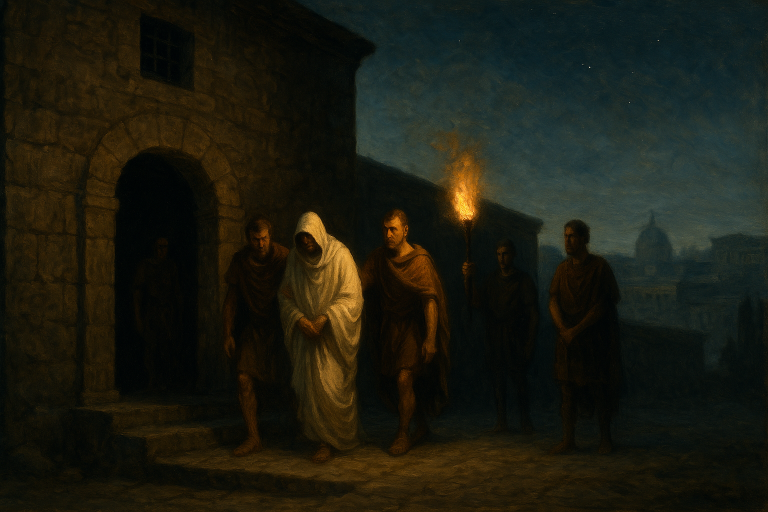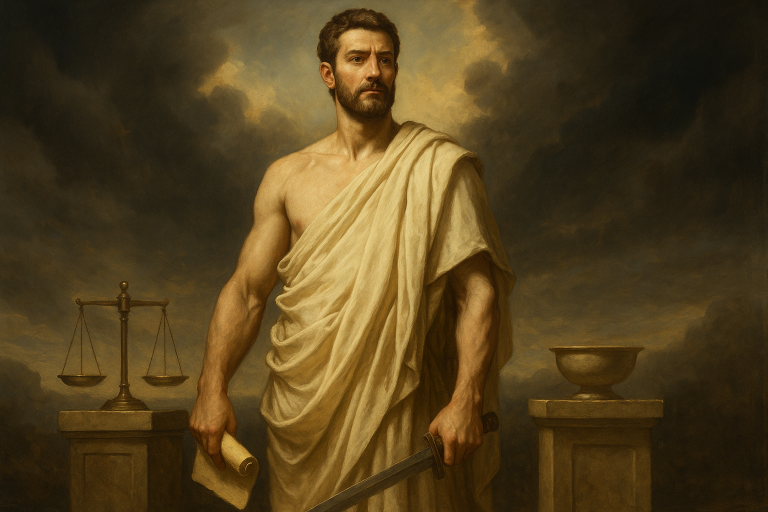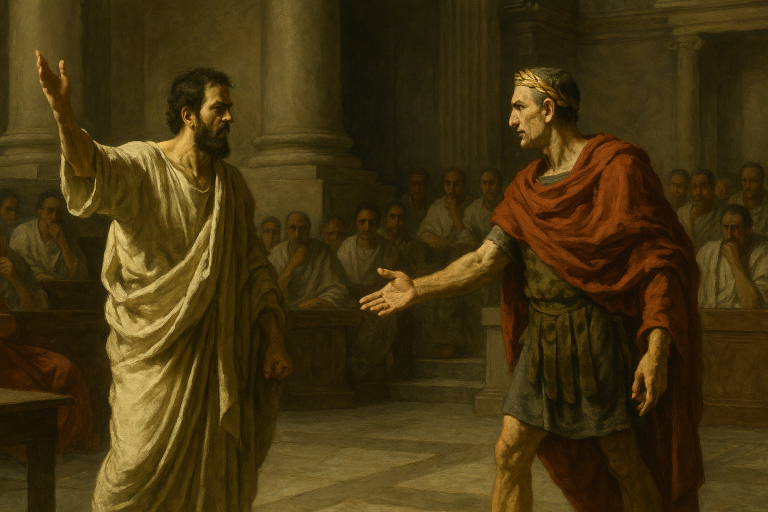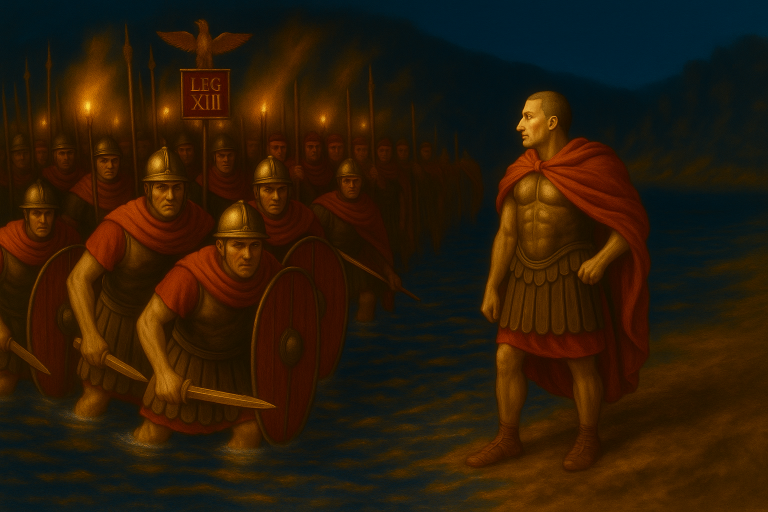The Dichotomy of Control · Mastering What’s Yours, Releasing What’s Not
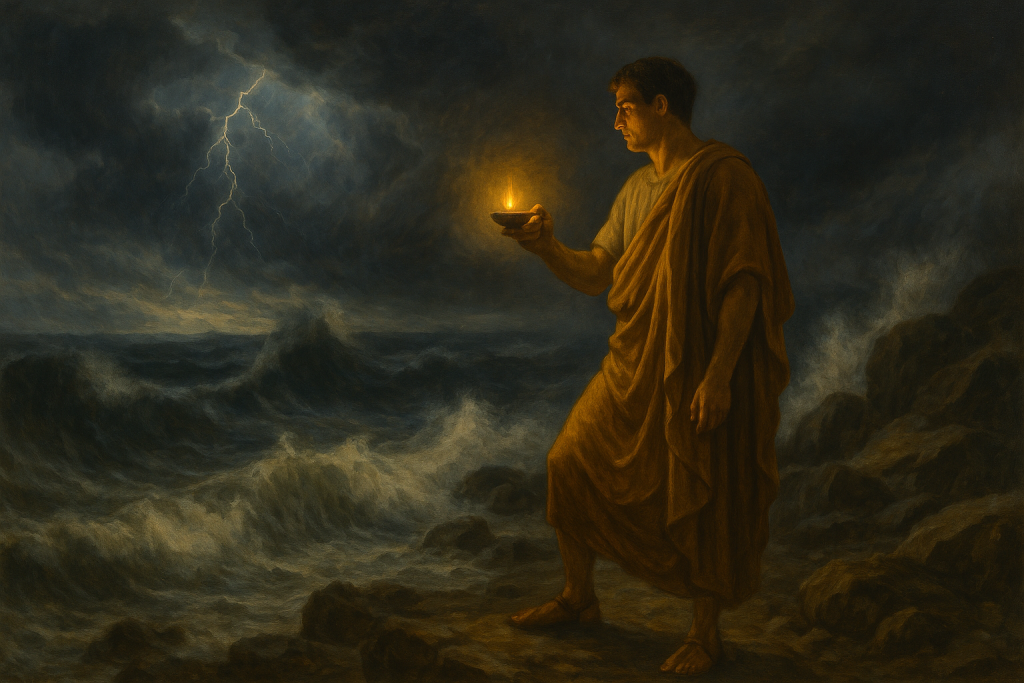
Modern life is restless. We wake to buzzing phones, chase tasks through crowded days, and collapse at night only to repeat it again tomorrow. There is constant motion, but it rarely feels like progress. Beneath the pace runs a steady undercurrent of anxiety, because so much of what occupies our thoughts is outside our control.
We worry about elections, the economy, what strangers think of us online. We scroll through headlines that make us angry, or watch our careers hinge on decisions made in rooms we will never enter. Even in our private lives, we obsess over outcomes that will not bend to our will. We want recognition at work, loyalty from friends, health in our bodies, stability in our families. And though these are good things, none of them can be fully commanded by us.
The result is a society running on exhaustion. People burn out not because they lack effort but because they pour effort into places where it makes no difference. It feels like rowing a boat with no oars, thrashing at the water but going nowhere. What fills the gap is frustration. We rage at politicians, resent our bosses, envy our neighbors, and stew over every small slight. Yet deep down we know none of that changes anything.
The crisis is not just distraction but misdirected energy. We live as if the whole world is in our hands, when in truth only a fraction of it is. Without a philosophy to remind us where our power ends and where it begins, we drift into bitterness. The more we chase what cannot be held, the less strength we have left for what can.
The Weight of Losing Control
When energy is wasted on what cannot be controlled, the human spirit bends under the strain. People who should be steady begin to crack. It shows up in ways that look different on the surface but share the same root: a life directed outward instead of inward.
Some collapse into despair. They believe the world is rigged against them and no effort matters. Resentment grows, and life becomes a string of complaints, each one confirming the suspicion that nothing can be changed.
Others lash outward. Frustration turns into bitterness, and bitterness becomes destructive. Anger is directed at society, politics, or anyone close enough to catch the blow. A man who cannot steady himself tries instead to control everyone else.
Many more simply drift. They bury themselves in comfort, scrolling endlessly, numbing with food or drink, filling hours with distractions that dull the ache but never cure it. Days blur together, and while nothing feels catastrophic, nothing feels meaningful either.
The consequence is the same across all of these paths. Life without a compass does not stand still. It unravels. Without clarity on what belongs to us and what does not, we lose strength where we could act and despair where we never had power to begin with. The soul atrophies when it wastes itself on things beyond its grasp.
Beyond Politics, Toward Philosophy
When life feels unstable, the temptation is to throw ourselves into politics or ideology. Every headline promises that the future hinges on the next election, the next law, the next leader. If only the right side wins, we tell ourselves, then things will finally feel steady.
But politics cannot give us what we are missing. Laws may restrain or guide, but they do not teach a man how to control his anger when he is insulted. No election result can teach someone how to endure grief or betrayal without bitterness. Power may shift hands, but the weight of personal struggle remains untouched.
The problem runs deeper than left or right, conservative or progressive. The true crisis is not political but philosophical. It is the absence of an ethos, a framework that tells us what belongs in our hands and what does not. Without this, ideology becomes a substitute for philosophy, and the result is constant outrage, shallow answers, and endless disappointment.
Stoicism stands apart because it does not hinge on the victories or failures of parties or movements. It speaks to something far more enduring: the discipline of the soul. It reminds us that what is outside our power will always shift like sand, and what is within our power must be guarded like treasure. When politics fails, and it always will at some level, philosophy remains.
Stoicism as the Answer
When the world feels unstable, Stoicism offers not escape but steadiness. It does not promise a life free of hardship, but it does offer a way to meet hardship without breaking. This is why it has endured for centuries, through wars, plagues, and personal loss.
The core of Stoicism is simple. Some things are in your control, and some things are not. Your thoughts, your choices, your actions are always yours to govern. Fortune, status, reputation, wealth, and even your health are never fully in your hands. The more you chase what you cannot control, the more you suffer. The more you focus on what is truly yours, the freer you become.
This clarity is why Stoicism spoke to men as different as Marcus Aurelius, Seneca, and Epictetus. An emperor, a statesman, and a former slave all found the same truth: responsibility, resilience, and discipline are not gifts from the outside world. They are inner practices.
Stoicism strips away excuses. It refuses to let us blame fate, politics, or fortune for the state of our soul. It demands that we look inward first, that we build strength where strength is possible, and that we let go of what was never ours to command.
It is not an easy path, but it is a liberating one. By drawing the line between what is within reach and what is not, Stoicism frees us from wasting our lives in resentment, fear, or envy. It is the kind of philosophy that does not remain on the page. It lives in the choices we make, moment by moment, when the world tests us.
The Four Virtues as a Framework
The Romans did not settle for vague ideas about being good people. They wanted a clear structure that could guide their actions in the Senate, on the battlefield, or in the home. Stoicism gave them that in the form of four cardinal virtues: wisdom, justice, courage, and temperance. These were not lofty ideals for debate, but daily measures of character.
Wisdom comes first. It means seeing the world as it is, not as we wish it to be. Wisdom asks us to distinguish between what belongs to us and what does not. A setback at work, a betrayal by a friend, the rise or fall of fortune—these may wound us, but they do not define us. Wisdom steadies us with clarity, keeping us from being tossed about by illusions or false hopes.
Justice is the recognition that life is never lived alone. To be just is to give others their due, to honor truth, and to act with fairness even when it costs us. In a world obsessed with self-interest, justice binds us to duty and community. Without it, philosophy collapses into selfishness.
Courage is not reckless daring but quiet resolve. It is the ability to face hardship, illness, loss, or danger without surrendering to fear. Courage is what keeps us standing when every impulse urges us to flee or collapse. The Stoics held that courage is not rare, but something built one decision at a time.
Temperance is restraint, the discipline that governs desire and impulse. It is the habit that keeps comfort from turning into weakness, ambition from turning into greed, and anger from turning into rage. Without temperance, the other virtues falter. With it, they endure.
Together these four virtues form the compass of Stoicism. They are not abstract theories but practical habits, tested in the choices of every day.
The Call to Live Differently
The Dichotomy of Control is not a thought experiment. It is a challenge to live with strength and clarity in a world that thrives on distraction and complaint. We cannot decide every outcome, but we can decide who we become in the process.
Too many men are taught to shrink or to lash out. They are told that their role is outdated, or they are tempted into weakness by comfort, or they let frustration harden into bitterness. What is missing is not potential but philosophy. A framework strong enough to carry the weight of real life.
Stoicism offers that framework. It tells us to focus on the only things that ever truly belonged to us: our judgments, our choices, our actions. It teaches that every other outcome lies beyond our grasp, and that freedom comes not from controlling the world, but from mastering ourselves. That is not an escape from responsibility but the very foundation of it.
To live as a Stoic is to refuse collapse when hardship comes. It is to meet both loss and success with balance. It is to act justly even when it costs, to stand firm when fear presses in, and to restrain the appetites that would otherwise rule us. The Dichotomy of Control is not about detachment from life. It is about entering life with discipline, purpose, and resilience.
The choice is simple but not easy. Drift with the current, or take up the oar and row with direction. Let fortune toss you about, or build the steadiness of a man who knows what belongs to him and what does not. Stoicism has endured for centuries because it points us toward the second path. The question that remains is whether we will take it.

